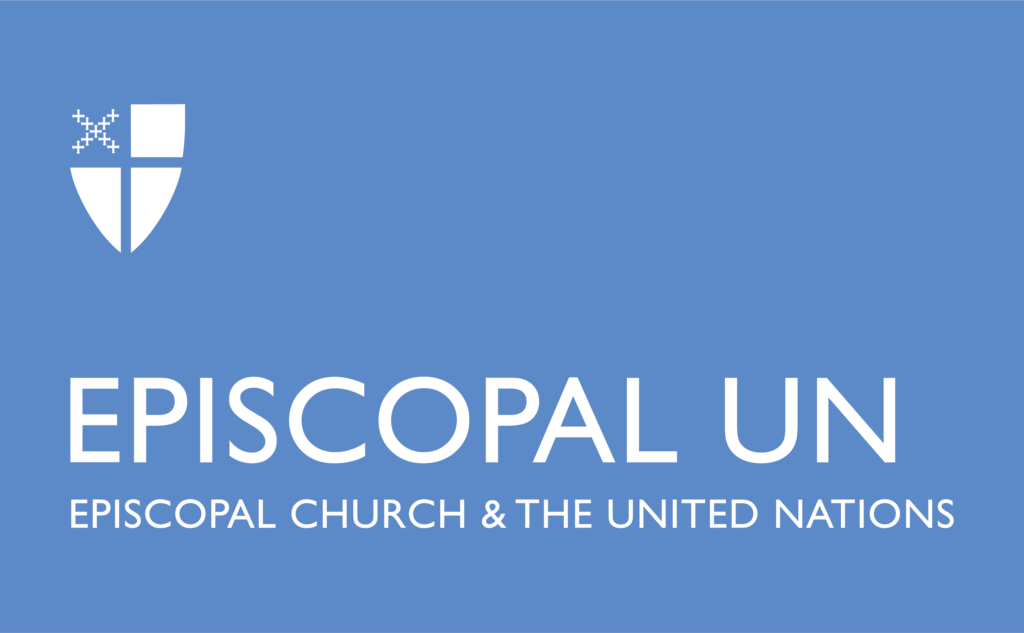#StandUp4HumanRights
72 years of the Universal Declaration of Human Rights
By: Lynnaia Main, Episcopal Church Representative to the United Nations
Human Rights Day is an annual international observance marking the anniversary of the signing of the Universal Declaration on Human Rights on December 10th, 1948 in Paris, amidst the physical, spiritual and psychological rubble left behind by the destruction of World War II.
This short but profound document sets out, in a Preamble and 30 Articles, fundamental human rights considered to be inalienable, universal and worthy of protection. These rights are based on the dignity of all human beings, such as the rights to life, liberty and security of person, education, health, shelter, decent working conditions, freedom from discrimination, the right to speak up and participate in decisions, freedom from arbitrary arrest and from torture and the right to a fair trial. While originally the Declaration was adopted by only a handful of countries (the Eastern bloc countries and Saudi Arabia abstained) and its universality was not immediately evident, it has since become a foundational document not just for the United Nations, but for human rights defenders worldwide.
That includes human rights defenders within our wider Episcopal Church. Individual Episcopalians, and The Episcopal Church through General Convention, were instrumental in developing and supporting the Declaration since its beginnings. Eleanor Roosevelt, herself an Episcopalian, was Chair of the Declaration’s drafting committee. Other Episcopalians ensured that the Declaration, once signed, was affirmed and studied. Thanks to the research of staff of The Archives of The Episcopal Church, we know that less than a year later, in 1949, General Convention adopted a resolution supporting the Declaration and outlining follow up actions. It urged Episcopalians to study the Declaration and called for the preparation of study materials for church groups. It called on Episcopalians, in studying the Declaration, to determine how to fulfill its objectives in their own lives. It also encouraged continued activity of the United States government along related lines. In December 1949, the National Council [as it was known then] followed up by referring the General Convention resolution to the Department of Christian Social Relations.
The Declaration gained traction within the UN system, becoming the foundation and inspiration for millions of people seeking their political rights to self-determination and freedom from colonial rule and for subsequent human rights movements worldwide. According to the UN’s Department of Global Communications, today the UDHR is the most translated document in the world, counting more than 500 languages. It has influenced constitutions, national legislations, and many subsequent covenants, conventions and treaties, including the 1966 International Covenant on Civil and Political Rights and the International Covenant on Economic, Social and Cultural Rights, the Convention on the Rights of the Child, the Beijing Declaration and Platform for Action, the Convention on the Elimination of Discrimination Against Women, the United Nations Declaration on the Rights of Indigenous Peoples, the Convention on the Rights of People with Disabilities, the UN Global Compacts on Refugees and Migration and more.
Episcopalians have kept pace with these human rights developments, active through their social activism and General Convention resolutions from the civil rights movements of the 1960s in the United States to women’s rights and the gender equality movement, the rights of lesbian, gay, transgender, bisexual and inquiring people and of indigenous peoples.
The progress of human rights is incomplete: their implementation is not respected everywhere and the rights of many still go unrecognized, unprotected, or are continually violated. It is also true that many people – perhaps including ourselves? – are not that familiar with the Declaration or the human rights it upholds. The COVID-19 pandemic has revealed all too clearly the connection to the human rights of medical care and social services, for example.
How will you, as an Episcopalian, re-engage around human rights on Human Rights Day? Will you take the time to read or re-read the Declaration? To explore the relationship between the Declaration’s call for the respect for human rights and Jesus’ call to love our neighbor as ourselves, thus honoring the human dignity and worth in each person, which in modern, secular parlance would include their rights? To research and understand whose rights are not being upheld or are being violated and why? To pray for their dignity and swift justice and respect for their rights? To take a stand for them?
We look around and see the rights of many groups of people at risk. African-Americans. Indigenous peoples. Refugees and migrants. Stateless people. LGBTQI people. DREAMers. Women. Religious minorities. They are acting to defend their rights. How will you act with them?
How will you #StandUp4HumanRights?


